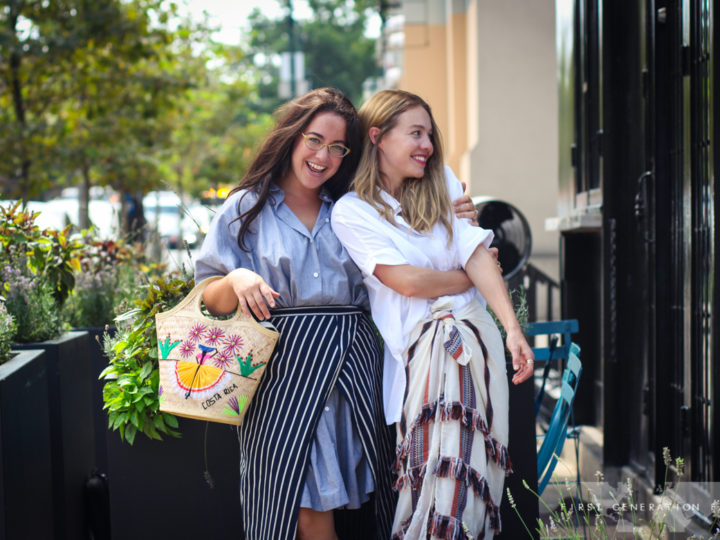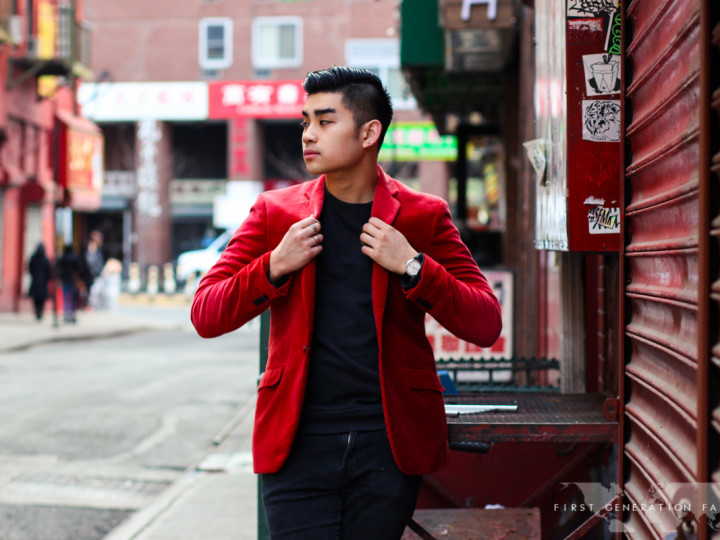Tell us about your background. I was born in Vietnam and moved to Australia when I was six years old, as my dad was a refugee. We settled in Melbourne and I became an Australian citizen not long after. Why was your family seeking political asylum In Australia? My family is from the South of Vietnam and my grandmother was a nurse in the Army helping the US during the Vietnam War. My family was well educated and their beliefs were aligned to the ways of the West, they were very much against the communist regime. Since my family was from the South, and technically fighting for the enemy, they were persecuted. All of my uncles had to go to re-education camp. Can you describe re-education camp? Once the North came in and won the war in 1975, they gathered everyone who was from the South, or who was not fighting for their cause, and they put them in jail. They were prisoners of war and had to do hard labor, they call it “re-education” because they re-educate you to their ways. Have you ever gone back to Vietnam since leaving as a little girl? Yes. At one point, after living in Paris, I decided that I was old enough and ready to go back and live in Vietnam and discover my heritage. I wanted to embrace my roots had this notion in my head where I thought I could finally understand and appreciate it. I thought that Vietnam would embrace me because it was my motherland. that it would be like coming back home. Instead, it was the total opposite. In what ways did you feel unwelcome? I came back to Vietnam and lived there for six months, and felt completely out of place. Even though I speak fluent Vietnamese and still have family in Vietnam, I wasn’t considered full Vietnamese. They use a term called “Viet Kieu”, which means Vietnamese foreigner. That’s how they referred to me. Most refugees don’t have the option to return home, and wouldn’t be accepted if they did return. In some ways, this is similar to your experience. Tell us about your perspective on the international refugee crisis. At five years old, my mom sent me off on a boat by myself to escape Vietnam by sea. She was desperate to give her children a better life not knowing where I was going to land. A few years back, my grandparents put four of my aunties and uncles on a boat to escape persecution and they all disappeared. There are so many stories like mine, this is not uncommon. Refugees are people who are escaping their war-torn countries, they shouldn’t be viewed as a threat. They’re not thinking, “how am I going to invade a country and kill its people? I know! I’ll get on a boat, not knowing where I’m going, or where I’m going to land, risk death, and take my kids to do it!” Right? That’s not what refugees are thinking. What was it like to immigrate to a predominantly white country? Were the Vietnamese refugees well received in Australia? I came in the last wave of immigrants that left Vietnam. Vietnamese immigrants were some of the first Asian immigrants to come to Australia and there were many assimilation issues. The language and culture was hard and we had a lot of crime coming from bored or lost youth. I grew up in the commission flats – what you would call the projects here. Many Australians just assumed that I was in an Asian gang. They thought that I sold drugs and was apart of the massive heroin epidemic that stemmed from the community. Where was this coming from? Fitting in was hard as there were limited support structure to help youth who didn’t fit into the system. It’s not uncommon for kids to get into trouble, but we’re not all like that, we just get grouped into the same category because of how we look. Growing up, I got into so many fights with Australian people that told me to “go back to where I came from”. I remember when was maybe 10 or 11 years old, everyone called us druggies and even the cops shook us down. But we weren’t. And it was a fight to get out of those communities. At a young age you faced very mature problems, how did you find your way without getting caught up in the trouble? My mom is a very strong, independent woman. She gave my sister and I very strong Vietnamese names. Traditionally, when you name your daughters in Vietnam you give them pretty, soft names because that’s what girls are supposed to be. Right? You need to be a “flower” or “autumn tears”, something with a soft meaning. But she gave my sister and I very strong names, because she didn’t want us to be weak and bound by traditional female roles in society. My name is a masculine one and means “bright star”. What’s your Vietnamese name? Minh Tu. So how did you become Emily? I grew up hating my name, because I didn’t want a boy’s name. I became Emily because my sister’s name in Vietnamese is very similar to mine. Her name is Minh Thu, and I’m Minh Tu. You can hear the difference in Vietnamese, but because of English phonetics, they sounded the same. In school it was very confusing. That’s why my mom suggested that I pick a westernized name. She hoped it would also help us fit in and assimilate. So you chose Emily? I went to a Catholic school so we had to pick a Catholic name. At first, I was going to pick my saint name which is Elizabeth. That lead to this whole thing of just E’s for my name, like Elizabeth or Eliza. I think I was Eliza for about a week. Finally, I chose Emily. She sounded industrious to me and I stuck with it. When I was in elementary school I asked my mom to put “Danielle” instead of “Daniela” on all of my notebooks. I wanted my name to be more common so that I would fit in. Today, I love that my name is Daniela and it fits my personality very well. The experience of wanting a different name is very relatable. In the human journey, it’s common for children to want to be like everyone else and a name plays a large role in that. I agree, when you’re growing up you always questions yourself and question so many things you don’t like about yourself. When I was in Paris everyone spelled Emily differently, my boss even called me Amelie. Maybe it was serendipitous, as if my journey was already written. As if the cards are already dealt. Tell us about your move from Melbourne to Paris. I take after my grandma, who is a constant traveller and lived a nomadic life. I have a very carefree personality, that’s my Australian side. Sometimes I don’t think about five steps ahead. Luckily, it always works out. I took an impulsive trip to Paris with a girlfriend and when I got there I knew I just wanted to live there. I didn’t speak a word of French and didn’t really know anyone there, I went with wide eyes and a little bit of naiveté. There were some very hard times, I was poor and lonely, but looking back, those were the best years of my life. Paris is like my first love. I guess I have some affinity to it. Vietnam was once colonized by the French. Does your affinity to French culture stem from your roots? I guess so. I came from a family of teachers who were really well read and my grandparents spoke French. I always felt an affinity somewhere to France. There was always something in my family, but I didn’t know what it was because I don’t have any actual French relatives. How did you spend your time in Paris? I enrolled in an atelier and took classes in painting at L’École des Beaux Arts. I have a really big interest and love for watercolor and ink. Do you think that your art, especially your inclination to ink, has anything to do with your background? I think it does. Traditional calligraphy and ink have a really beautiful immediate texture. It’s not like oil painting where you can make a mistake and then come back to it. I find ink and watercolor are similar because when you put it down, you put it down. It’s really cliché, but a bit of a metaphor for life. If you put it down and you make a mistake you can work around it. But you can never go back and fix it to make it perfect again. When you were living in France did you feel more at home than you did in Australia? Because of the French influence in Vietnam, did it feel at all like returning to your roots? It’s always easier for me to feel at home in a foreign country because I’m already identified as a foreigner. In Australia, everyone would say that I was not really fully Australian. They would constantly ask, “where are you from?” I had to say that I was “Vietnamese Australian”. When I was living in Paris I felt more of an actual foreigner and that it was okay to exist like that. I didn’t feel the need to fit in or to be Parisian or French. Tell us about about moving to New York what brought you here? Before I moved here I always thought New York was on a pedestal. I was too scared to go to New York or felt like I wasn’t good enough. Then I hit a milestone birthday and realized that I had to do it then, or it would never happen. I came to New York on a really miserable rainy day. But I completely fell in love and decided to stay. Now that you live in New York, what’s it like to be identified as an Australian sometimes and also identified as Vietnamese other times? I have to say, I didn’t think this would happen to me… especially in a city like New York just given how diverse it is. But I have had more racist experiences in New York than I’ve had anywhere else. In what context? One time I went into the store and a non Chinese guy said to me, “ni hao”. I replied that I speak English and he said to me “and I speak Chinese”. I replied, “OK, but I’m not Chinese”. He then turned around to his friend and said, “oh God, young people these days don’t want to get in touch with their roots”. It’s because I’m not Chinese! I get a lot of random guys yell out “ni hao” to me on the streets all the time. Has this tarnished your love for New York? No, it’s frustrating and annoying, but I try to push pass it and move forward. Even now, doing what I do, especially in the industry that I work in, it still blows my mind. I feel like I’m living someone else’s life, I never thought that I could be here doing the things that I do and meeting the people that I’ve met – producing shows for New York Fashion Week at the level of all the big brands and two years ago I founded an architectural and design studio with my partner. New York City is the only place in the world where immigrants have the opportunities to grow to such great lengths. Unfortunately, policies are changing everyday. The political atmosphere and 2017 visa bans have really heightened the awareness on immigration challenges. Do you feel affected? I didn’t think that it would affect me. I am from Australia, which isn’t a country on a “list”. I’ve been in New York for four years working, paying taxes, and not committing any crimes. So I thought that it didn’t relate to me. When I had to renew my work visa I was still a little bit nervous. But I told myself that I had nothing to worry about because I’m not a threat. Was that the case? Did you have nothing to worry about? No. I decided to travel to Paris to renew my visa last spring. I was supposed to only be there for five days. It usually only takes three to five days to conduct an interview and have the US Embassy process the visa. They take your passport and return it with the visa stamped inside once it is granted. Then you get to go back. This time, it took me two months, and I was stuck in Paris without a passport. I couldn’t go anywhere. Tell us about what went wrong. To be honest, I’m not sure. The first thing I was asked was, “do you speak English?” Even though I greeted them with, “hello, how are you?” And I had an Australian passport with me. What happened next? I was thoroughly asked more questions than I normally would have been asked in this kind of interview. But it wasn’t out of the ordinary, so I answered him clearly and I had all of the paperwork. Everything was in order. Then he just said, “I don’t believe you I need further processing.” At that point I was really shocked and speechless because it was for the same job that I’ve had for the last 4 years – nothing has changed! They asked me for any supporting documents and of course I asked what kind of supporting documents. I was told, “whatever you think will help”. What did that mean? Did they want me to send a picture of me and my mum? Or maybe one of my dog? Was this correlated with the day that the travel ban was put into place by the Trump Administration? The travel ban was a few weeks before this, at that time I wasn’t sure because it’s normal to be stressed when you’re at an embassy. I was also worried that if I was too vocal it might trigger something and then I would get “visa denied.” There were so many thoughts going through my head. So I just shut my mouth and waited in Paris and I waited, and waited. I kept calling every day. How long did this go on for? Seven or eight weeks. When I initially left the US I packed for five days. I was really unprepared so I had to go out and buy new things, like underwear. Where were you staying? I still have really good friends in Paris and I had a family apartment. When I told my friends that I was stuck in Paris, no one really felt bad for me. Getting stuck in Paris with a free place to stay sounds kind of like white privilege, but you’re not white. This paints a more accurate picture of what immigration looks like, despite the narrow image news outlets and politics portray. Your experience is so relevant in today’s political atmosphere. I was very grateful that I was stuck in Paris where I have a network. I usually travel to Barbados to renew my visa and decided this time to go to Paris. I am very lucky that my uncle had an apartment that he wasn’t using where I could live. What was most upsetting is that I didn’t know if could ever go back to New York. All of my belongings and the life in New York that I have built in the last four years could be instantly taken away. Does that happen to people on work visas? Do they get denied and are never allowed back? I’ve heard so many horror stories from other people who had their visas denied. They couldn’t re-enter the US so they had to leave their belongings behind and have their friends sell all of their furniture. They were unable to return to cover all of their affairs. If your visa is denied, then you get also get a black mark on your record. At any moment New York can be taken away from you. Tell us about the experience of being a New Yorker but only truly having one foot on the ground. I find it makes me work for everything even harder. It also makes me feel like I have nothing to lose. I came here with everything I had. I put all my eggs in this one basket. I said “yes” to everything when I came to New York because I just wanted opportunity. It just so happened that I was always at the right place, at the right time, saying yes to the right people. This also means that I’m not afraid to get my hands dirty or do something that’s outside of my position description. I know that at any moment the law can change and I might not be able to be here anymore. It sounds like you’re contributing more than some US citizens because you’re working ten times harder. Maybe. I don’t think my story is very unique; everyone is a hard worker if you give them the chance. This is a popular topic about immigrants. Immigrants are generally painted by the media as blue collar workers. Barely anyone shines a light on immigrants that are in the corporate world or something as aspirational as working in fashion. It’s so true. I came to New York not knowing anyone. No shame, no fear. New York is such a unique city. I have nothing to lose so I’m just going to do it. New York can be anything you want it to be but it can also be the meanest bitch ever. It will chew you up and spit you out if you’re not ready. You have to really take it on. I only truly fully understood that after having lived here. Does the struggle to make it here ever wear you out? I think it’s hard and it’s really tiring. Sometimes I’m just so tired of hustling in New York. But then it gives me all this inspiration — all this life. Any time I have a shitty day and I take a car ride over the bridge where I see the Lower Manhattan skyline, it makes me feel like oh, I love you again. I see NY as that asshole love of your life boyfriend that you can’t live without. As a foreigner in New York, I don’t take it for granted. As far as I know, this is not my life. New York is not mine. I have to do everything I can now because New York is not my home. I don’t have something to fall back on and it’s never permanent. For more of Emily’s story subscribe to First Gen Fashion Emily is the Founder and Creative Director of SOAP Design Studio and Brand Manager at Primary New York.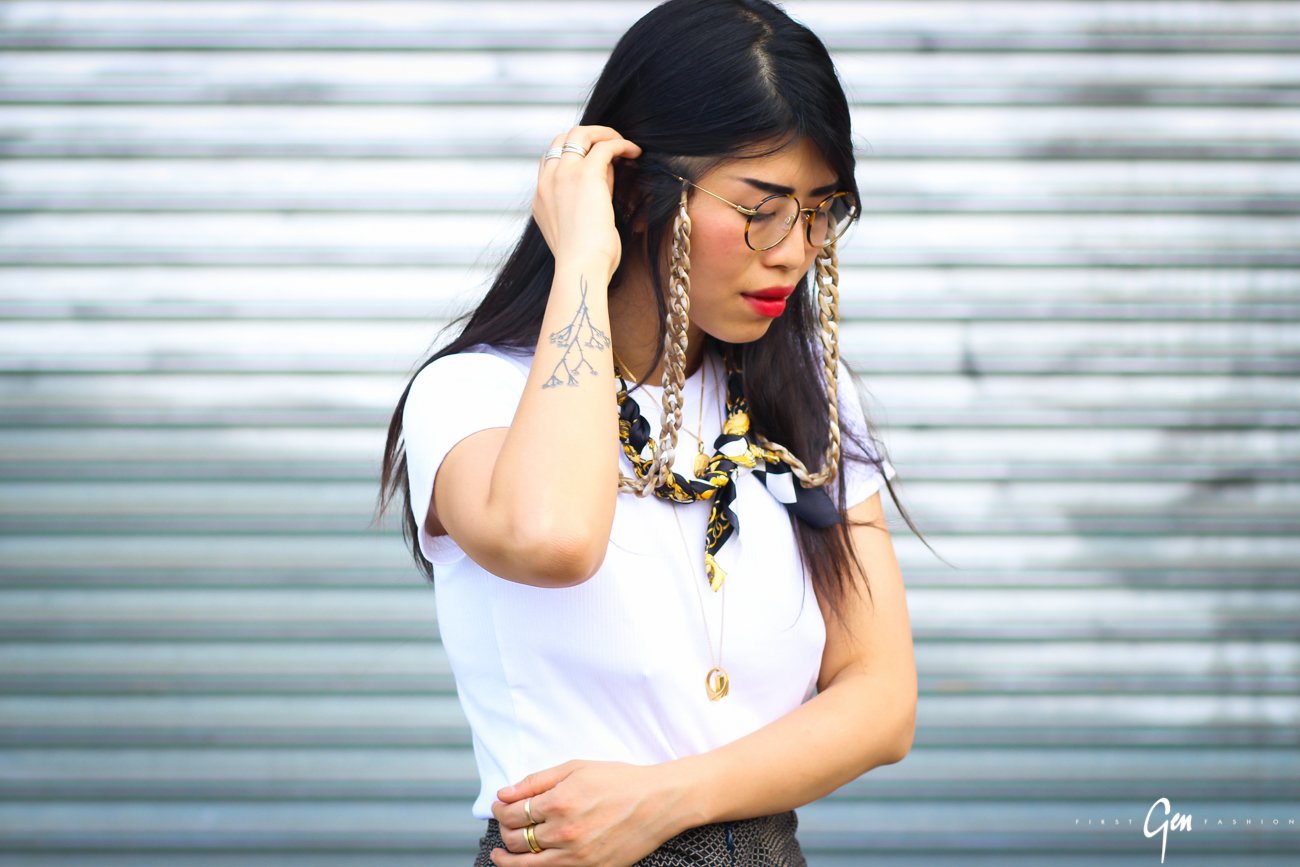
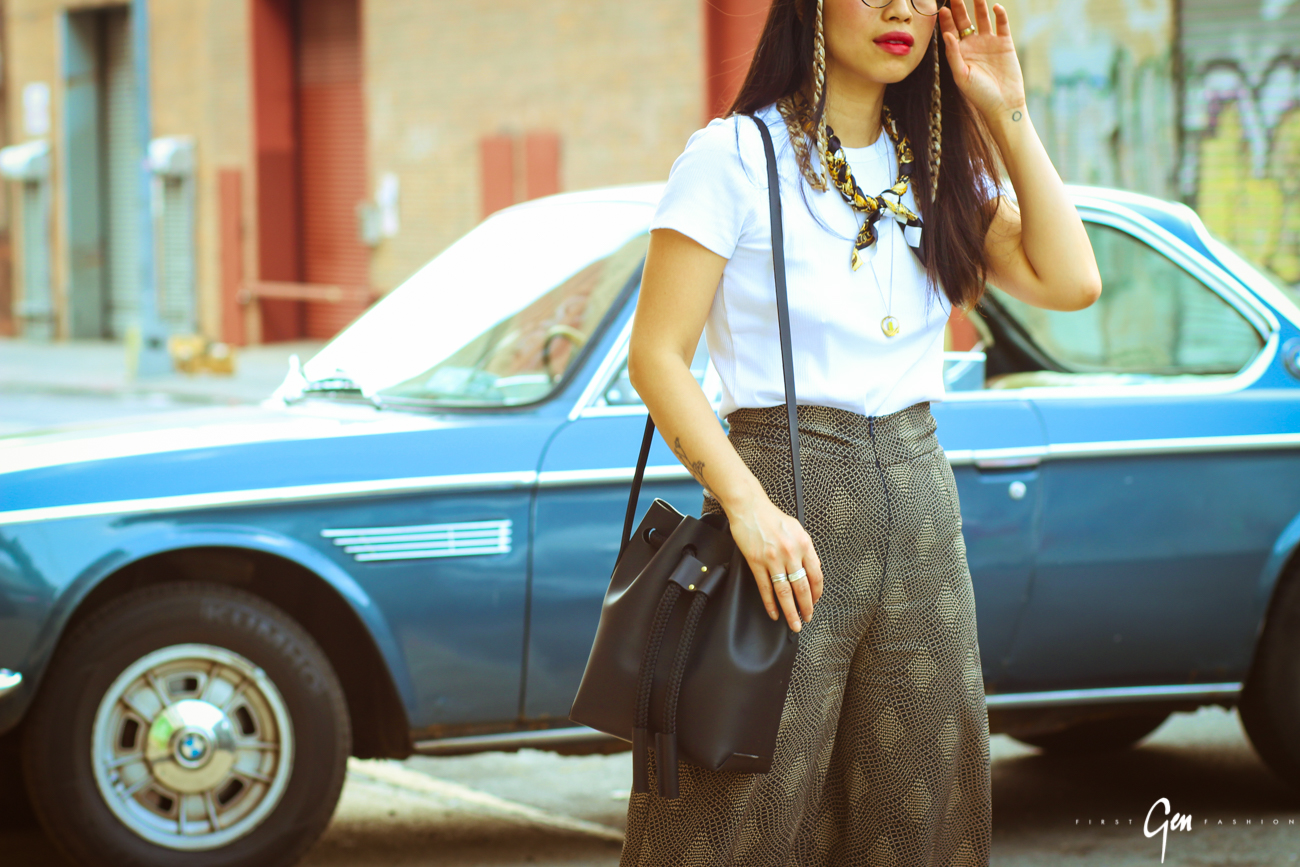
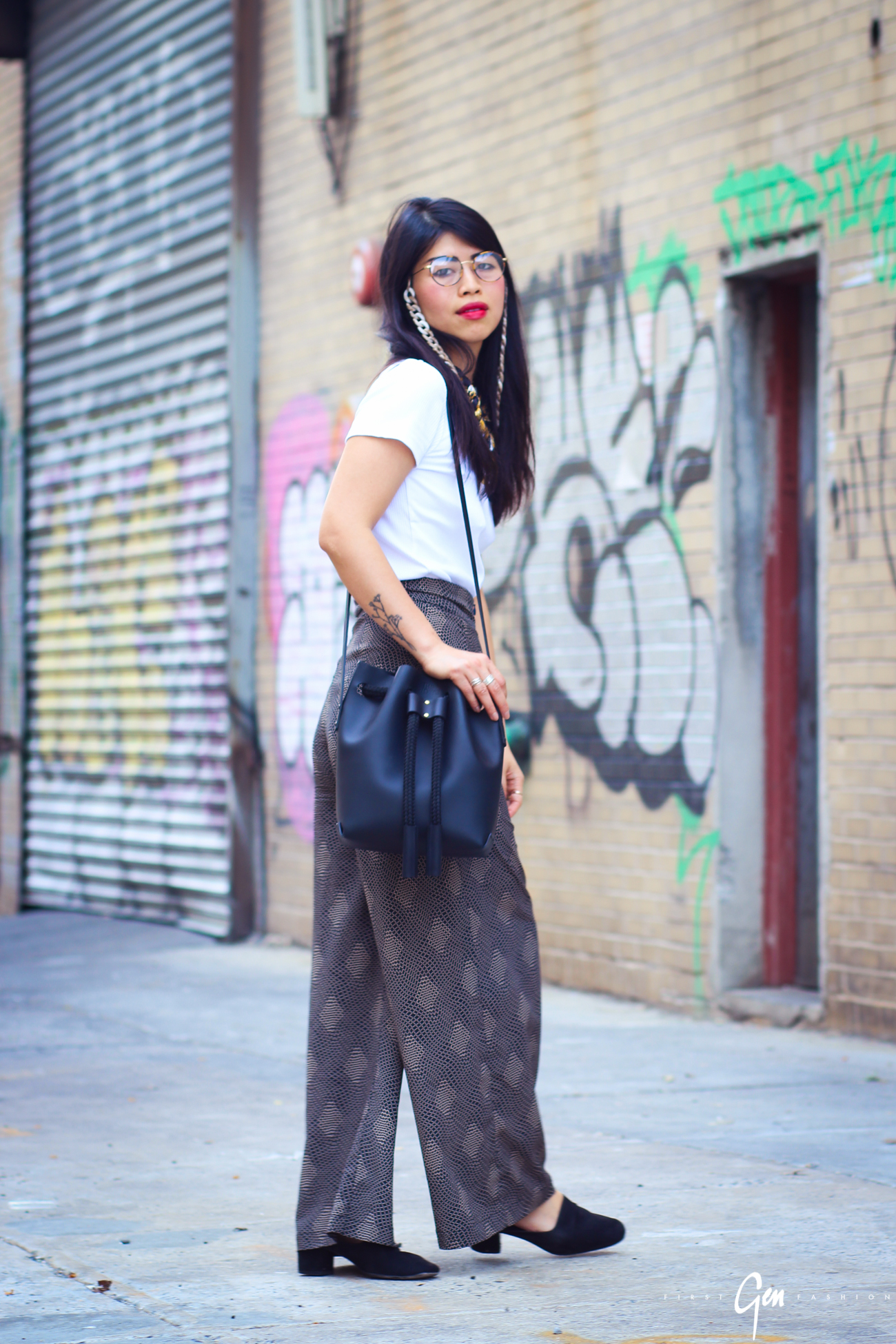
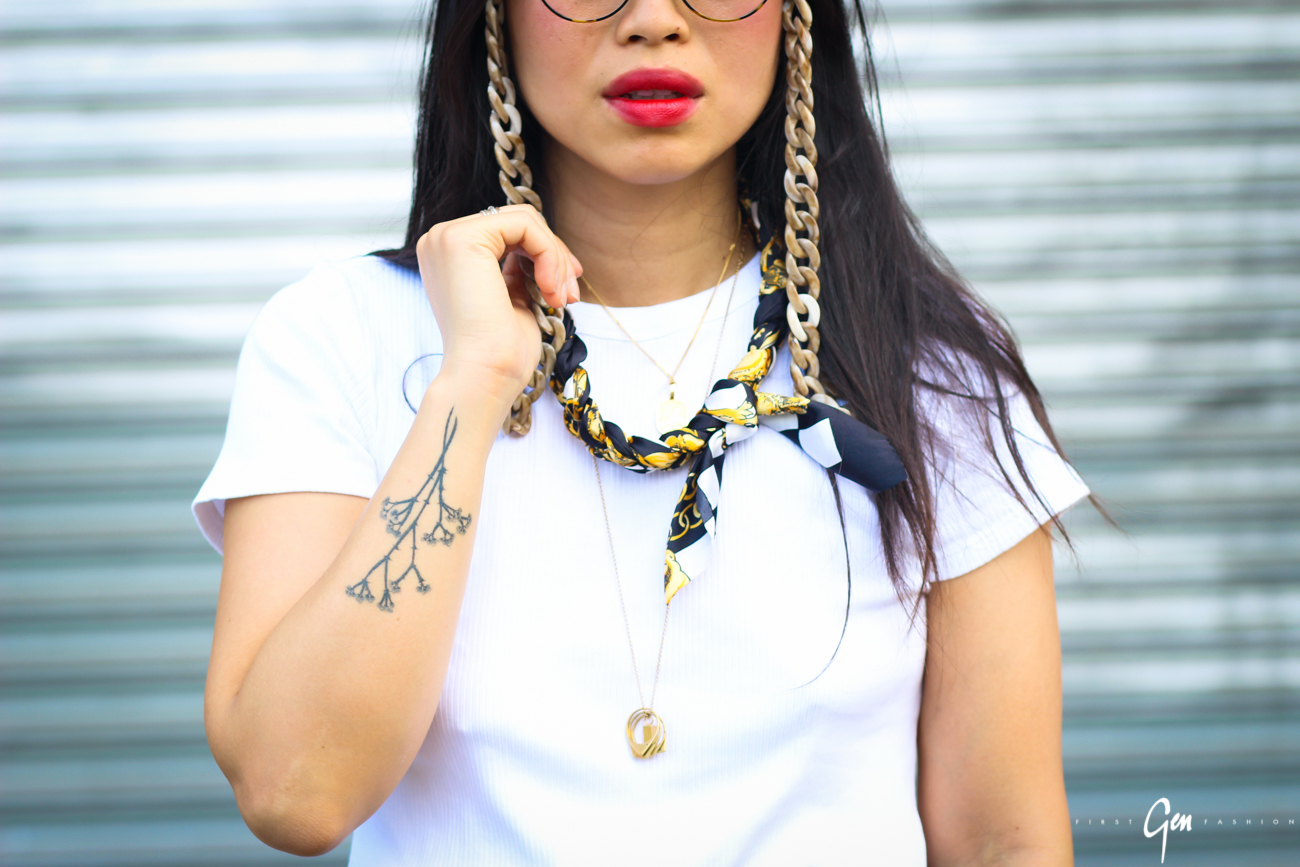
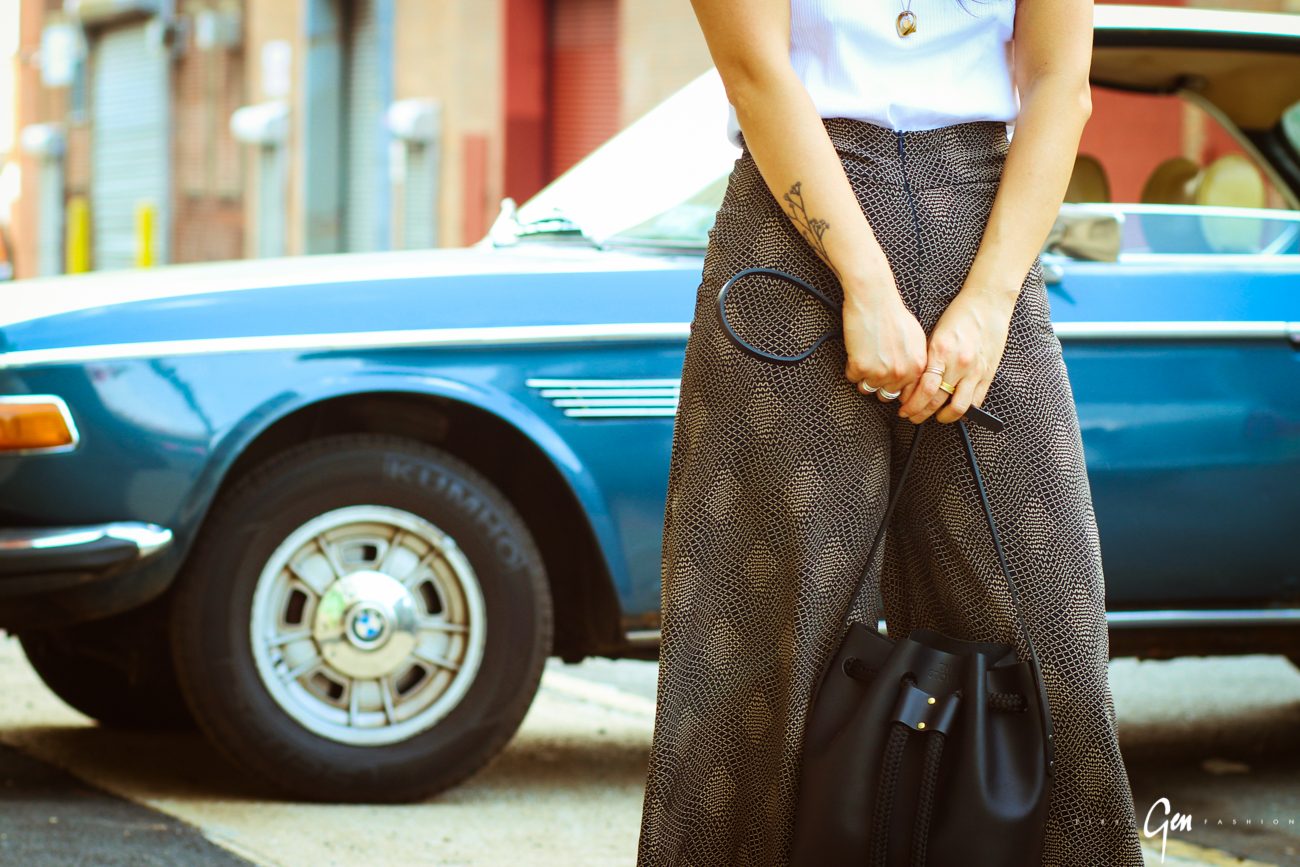
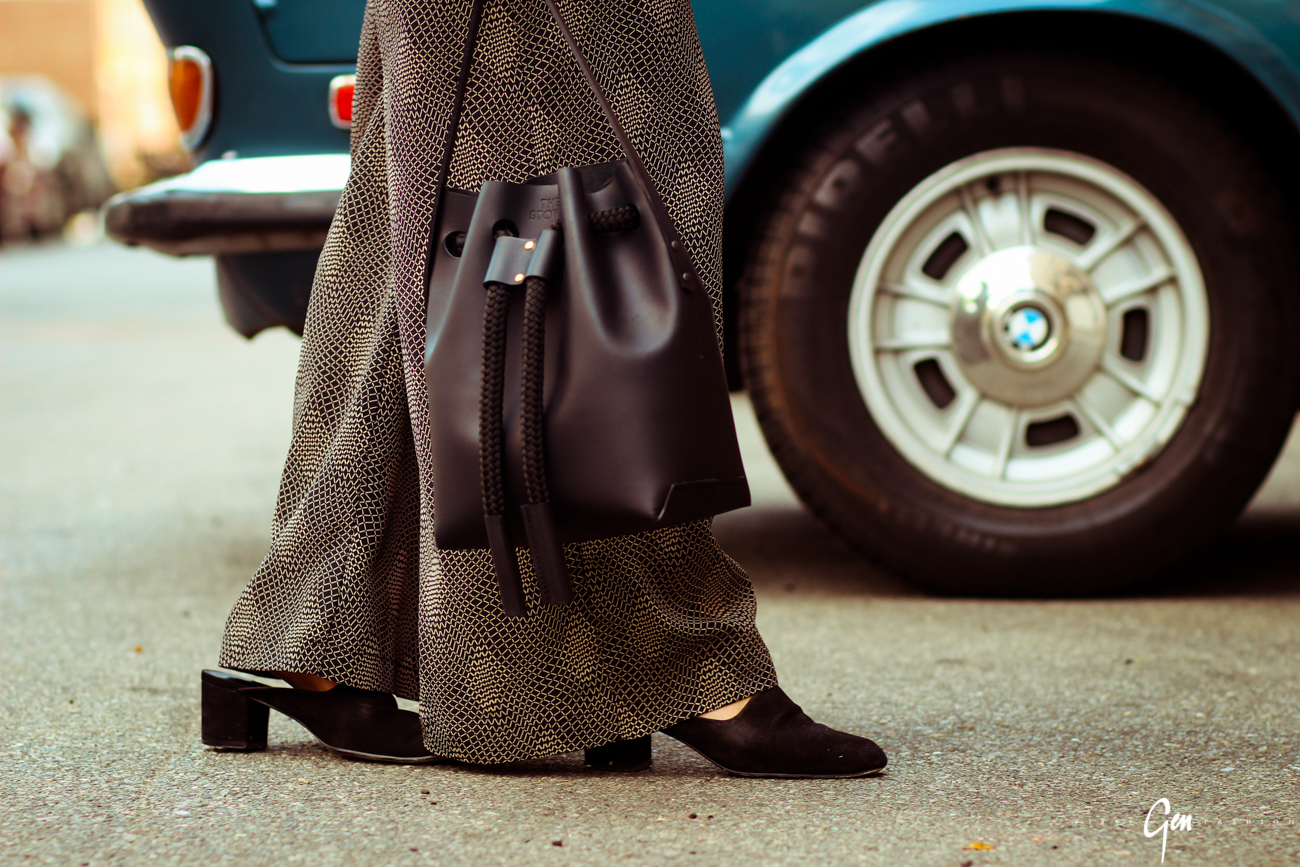
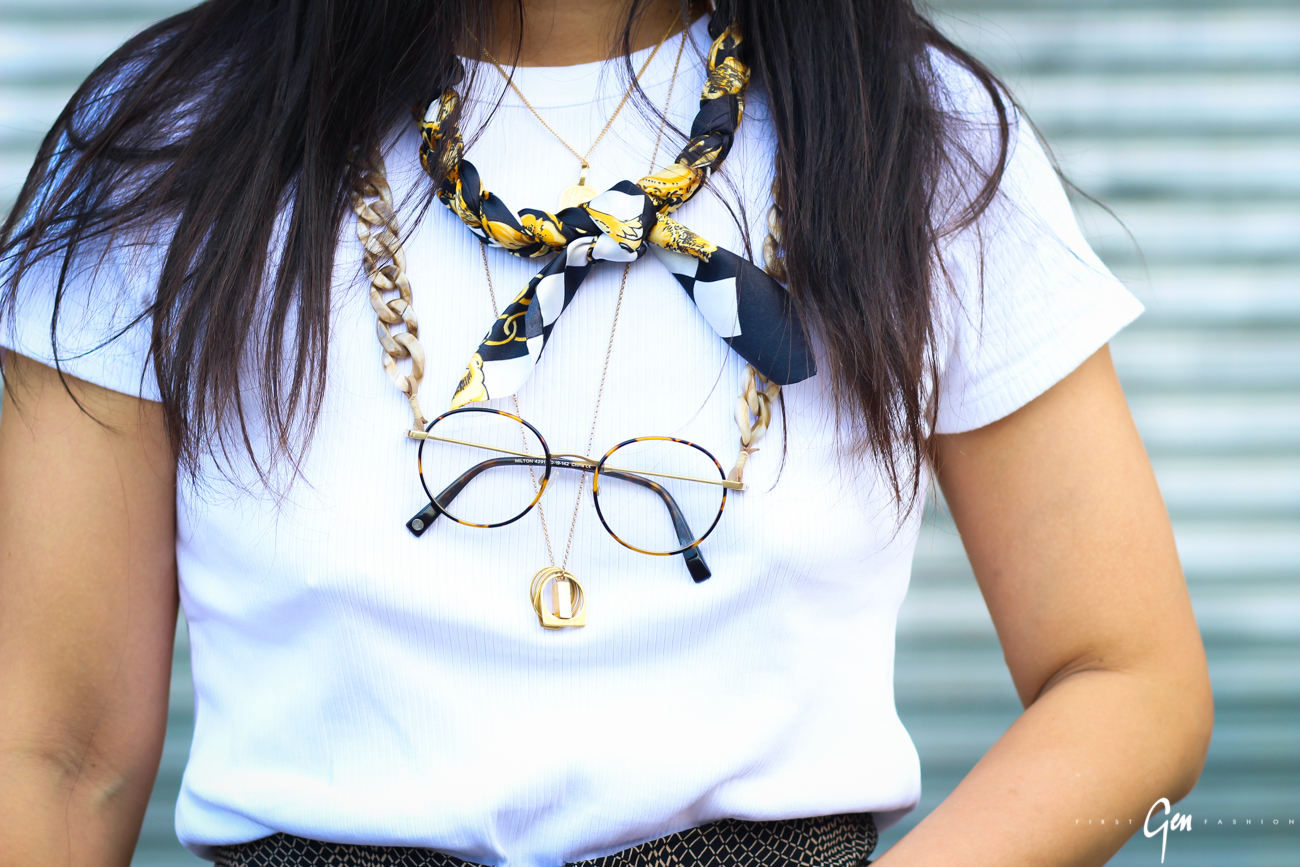
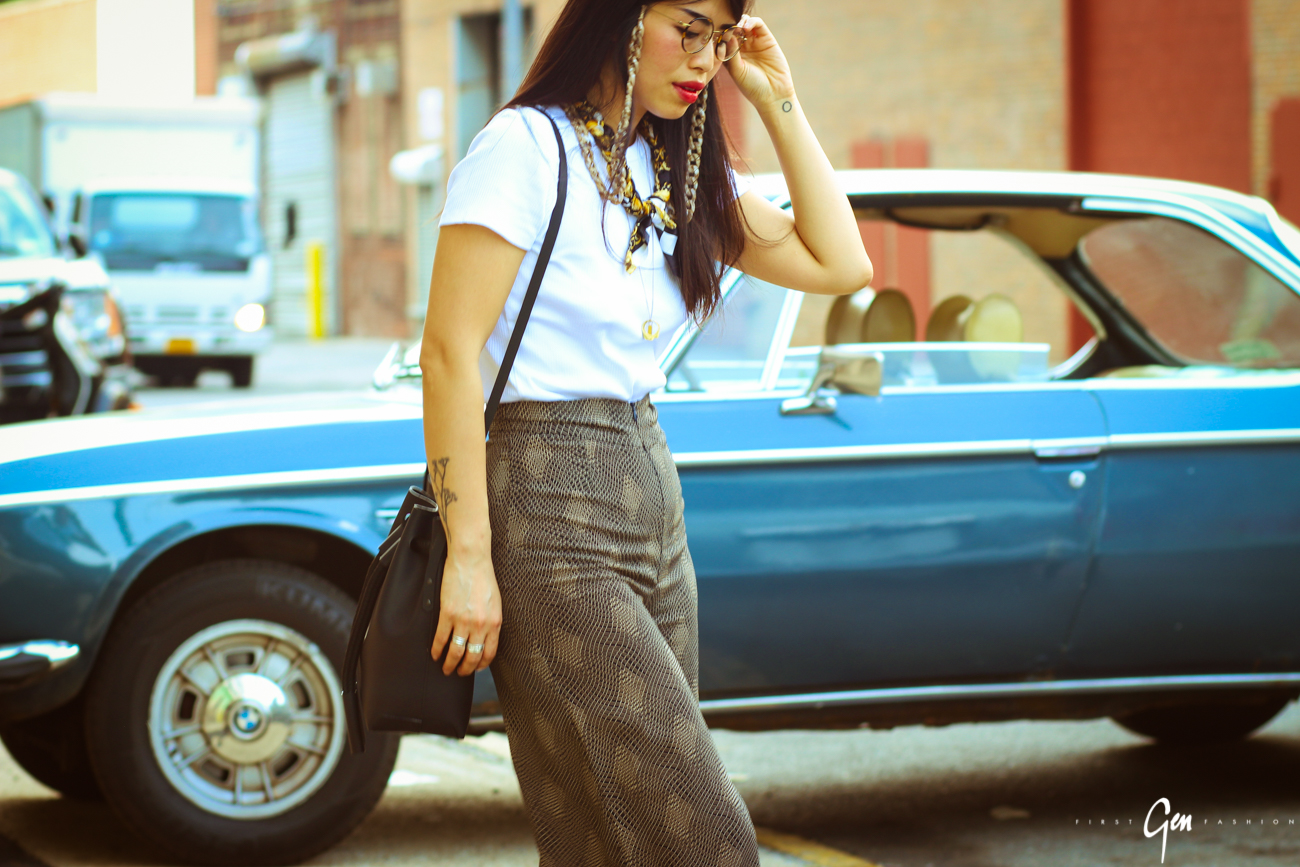
Emily is a cool, New York City fashion girl hailing from Australia, but her story begins as a refugee fleeing war-torn Vietnam. Having spent her formative years living between Vietnam, Australia, France, and the US, her personal identity is largely defined by the term “visitor”. Today, Emily thrives in NYC’s fashion and art metropolis, and is a company Founder. But she truly only has one foot on the ground. Her tenacity partially stems from the bittersweet reality that New York City will never be her home. Without an attachment to any specific city, she is even more determined to pave her own way.
“I grew up hating my name. That’s why my mom suggested that I pick a westernized name. She hoped it would also help us fit in and assimilate.”
“It’s always easier for me to feel at home in a foreign country because I’m already identified as a foreigner. In Australia, everyone would say that I was not really fully Australian. I had to repeat that I was Vietnamese Australian. When I was living in Paris I felt more of an actual foreigner and that it was okay to exist like that.”
“I didn’t know if could ever go back to New York. All of my belongings and the life in New York that I have built in the last four years could be instantly taken away.”
“I think as a foreigner in New York, I don’t take it for granted. As far as I know, this is not my life. New York is not mine. I have to do everything I can now because New York is not my home. It will never permanent.”
0
0

